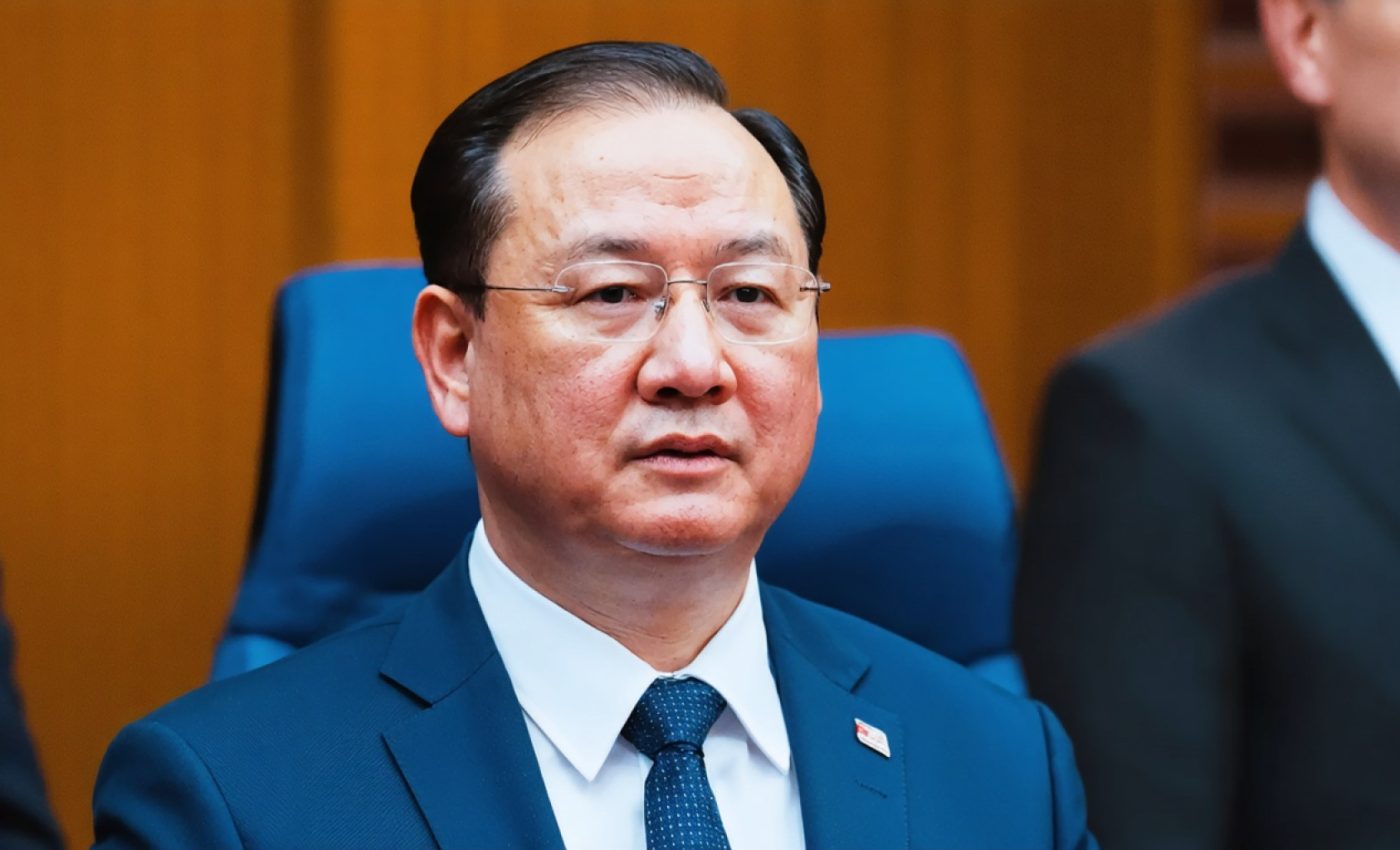- A corruption investigation targets Jiang Chaoliang, a key figure in China’s political sphere, causing significant tension in agricultural policy and rural governance.
- Jiang Chaoliang, with a distinguished career including roles as Party Secretary of Hubei and deputy director of the Agriculture and Rural Affairs Committee, is now under scrutiny.
- The Central Commission for Discipline Inspection’s investigation emphasizes a strong commitment to maintaining integrity and accountability in governance.
- This inquiry reflects broader efforts towards transparency and reform within China’s political system.
- The situation highlights the paramount importance of vigilance and accountability for leaders, as the public remains watchful of power dynamics.
An undercurrent of tension grips the corridors of power as a prominent figure in China’s political landscape finds himself in the crosshairs of a sweeping corruption investigation. The vibrant world of agricultural policy and rural governance has stood on edge since the announcement of an investigation into Jiang Chaoliang, a seasoned politician with a storied career.
Rising through the political ranks, Jiang Chaoliang, born in the summer of 1957, has long been a formidable presence. His career saw him wear many hats, from governing Jilin Province to leading Hubei as the Party Secretary. Now, his stature as a deputy director within the esteemed Agriculture and Rural Affairs Committee underscores the gravity of the current probe.
As the investigation unfolds, the Central Commission for Discipline Inspection casts a net poised to unearth instances of severe misconduct. This potent examination underscores the ironclad resolve to uphold integrity and accountability within the governance spectrum. Past laurels fade as this intense scrutiny threads through Jiang’s past, leaving no stone unturned.
The public watches with bated breath, aware that such inquiries herald a broader commitment to transparency and reform. The echo of footsteps down Beijing’s hallowed halls resounds with a singular purpose: to cleanse the ranks and ensure that power wields responsibility, not self-indulgence.
In a world yearning for equitable leadership, this unfolding saga reaffirms a pivotal message: vigilance remains paramount, and the watchful eyes of accountability never blink.
Corruption in China’s Political Landscape: What the Investigation into Jiang Chaoliang Reveals
How-To Steps & Life Hacks
Understanding and Recognizing Corruption in Governance:
1. Stay Informed: Regularly follow credible news sources to stay updated on political happenings.
2. Educate Yourself: Learn about common forms of corruption, such as bribery, embezzlement, and nepotism, to recognize them in conversations and media reports.
3. Engage in Discussions: Participate in forums and groups where governance issues are discussed to form a balanced opinion.
4. Report Anonymously: If you suspect corruption, use designated platforms to report it anonymously to authorities.
Real-World Use Cases
Corruption investigations like that of Jiang Chaoliang play significant roles in countries worldwide:
– Brazil’s Lava Jato (Car Wash) Operation: Overhauled political and business sectors by exposing endemic corruption.
– South Korea’s “Choi Soon-sil Gate”: Led to the impeachment of a sitting president and major reforms in governance and transparency.
Market Forecasts & Industry Trends
– Trend Towards Transparency: The global demand for transparent governance is accelerating. Digital platforms and blockchain technology are increasingly used in governance to enhance transparency and accountability.
– Growing Public Involvement: Citizens are more engaged than ever before, using social media and digital tools to hold leaders accountable.
Reviews & Comparisons
Corruption scandals vary across political systems:
– Western Democracies: Often feature independent judiciary systems and free media that can aid in uncovering corruption.
– Authoritarian Regimes: Investigations may be used politically to eliminate opposition, calling into question motives and outcomes.
Controversies & Limitations
– Political Motivations: Critics argue that corruption investigations in some regimes may sometimes be politically motivated to remove rivals rather than a genuine effort to combat malfeasance.
– Limitations in Scope: Such investigations may focus intensely on select figures while broader systemic issues remain unaddressed.
Features, Specs & Pricing
Not directly applicable for governance scandals, but in terms of governance reform:
– Transparency Measures: Implementing audits, requiring declarations of interests, and promoting civic education.
– Cost of Corruption Studies: Various studies, like those by the World Bank, highlight how corruption stifles economic development, with costs running into billions of dollars globally.
Security & Sustainability
– Corruption Undermines Security: Weakens trust in public institutions, leading to instability and, in some cases, national unrest.
– Unsustainable Growth: Corruption skews resource allocation, leading to inefficient and unsustainable development models.
Insights & Predictions
– Increased Scrutiny: More political figures worldwide will be under tighter scrutiny as the global demand for transparency intensifies.
– Innovative Solutions: Expect to see enhanced use of artificial intelligence in identifying patterns indicative of corrupt activities.
Pros & Cons Overview
Pros:
– Promotes Accountability: Shines a light on malpractices, encouraging cleaner governance.
– Enhances Public Trust: Demonstrates commitment to integrity and transparency.
Cons:
– Potential for Abuse: Risks being used as political tools.
– Can Cause Instability: Investigations might lead to sudden shifts in political and economic environments.
Actionable Recommendations
– Support Initiatives: Get involved in or support organizations that aim to enhance government transparency and accountability.
– Use Technology Wisely: Leverage technology to better inform yourself and contribute to public discourse on governance and accountability.
For more on governance and political transparency, visit the Transparency International website.
In conclusion, the investigation into Jiang Chaoliang serves as a timely reminder of the critical importance of transparency and accountability in governance. By understanding these dynamics, citizens can be better equipped to hold leadership accountable and foster a culture of integrity within public institutions.






